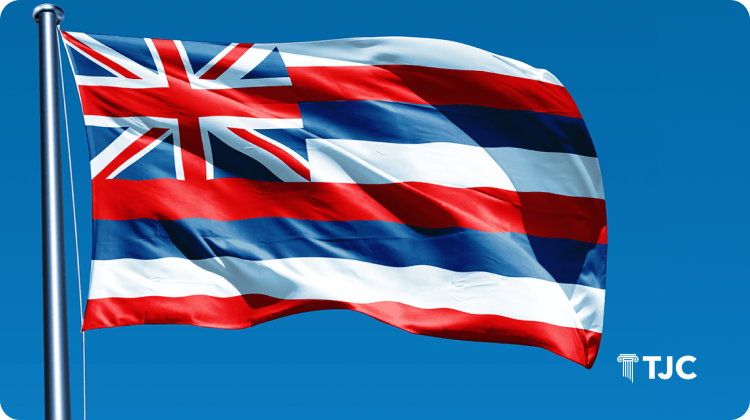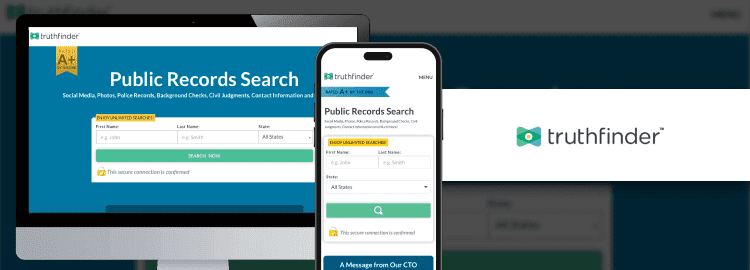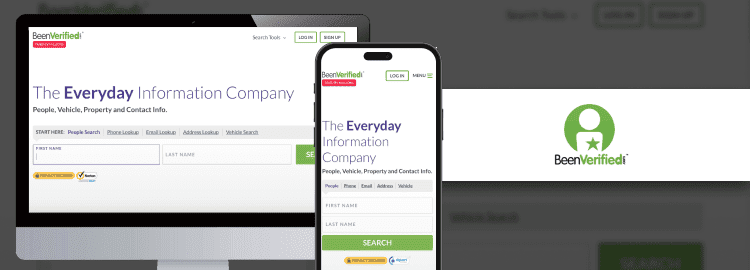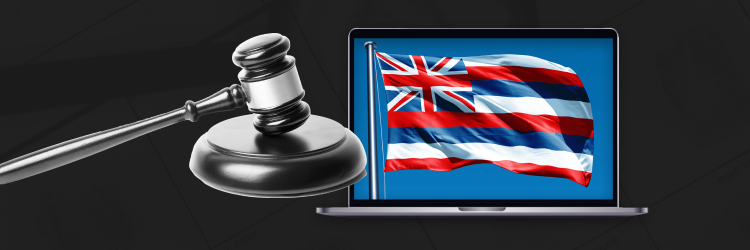Background Check Hawaii: Requirements, Regulations & More

A background check is a comprehensive review of an individual’s history, typically used to verify their suitability for various roles or activities. In Hawaii, background checks are essential for employment, volunteering, licensing, and housing purposes. This article covers the types of background checks, how to obtain them, what shows up in these checks, and the relevant laws and regulations in Hawaii.
Need a Background Check?
Get StartedWhat Is a Hawaii Background Check?
A background check in Hawaii involves reviewing an individual’s full criminal record, employment, and educational history to verify their suitability for a particular role or activity. These checks are used by employers, volunteer organizations, licensing agencies, and landlords to ensure the safety, reliability, and trustworthiness of individuals.
Uses of background checks:
- Employment: Employers conduct background checks to confirm the qualifications and integrity of potential hires, ensuring they have no disqualifying criminal records.
- Volunteering: Organizations require background checks for volunteers, especially those working with vulnerable populations, to ensure they are trustworthy and safe.
- Licensing: Professional licensing boards use background checks to verify that applicants meet ethical and legal standards.
- Housing: Landlords may conduct background checks on prospective tenants to ensure they have a reliable rental history and no criminal background that could pose a risk to the community.
What Are the Background Check Laws in Hawaii?
Hawaii made history in 1998 by becoming the first state to enact a “ban-the-box” law, which prohibits employers from inquiring about an applicant’s criminal history until after a conditional offer of employment has been made.
This state law aims to provide individuals with a fair chance at employment by focusing on their qualifications rather than their past. In Hawaii, even after a job offer is made, employers can only consider convictions that have a direct bearing on the job duties.
Additionally, the local Hawaii legislature places strong emphasis on equal opportunity, requiring employers to make hiring decisions based on merit, qualifications, and the ability to perform job-related duties. These regulations are part of Hawaii’s broader efforts to support rehabilitation and prevent discrimination in the hiring process.
Hawaii Revised Statutes Chapter 378 (Employment Practices)
Chapter 378 outlines fair employment practices and prohibits discrimination based on criminal history unless it is directly related to the job. It also includes requirements for notifying applicants if adverse action is taken based on their criminal history.
Hawaii Revised Statutes Chapter 846 (Hawaii Criminal Justice Data Center)
Hawaii Revised Statutes Chapter 846 establishes the Hawaii Criminal Justice Data Center, responsible for maintaining and disseminating criminal history records. It sets guidelines for accessing these records, ensuring that they are used appropriately and confidentially.
Hawaii Revised Statutes Chapter 378-2.5 (Criminal History Record Checks)
Chapter 378-2.5 details the procedures for conducting criminal history record checks. It mandates that employers and organizations obtain written consent from individuals before conducting these checks and outlines the process for notifying individuals of their rights.
Fair Credit Reporting Act (FCRA)
The FCRA regulates the use of consumer credit information, including background checks. It requires that individuals be informed when a background check is being conducted, consent to the check, and receive a copy of the report if any adverse action is taken based on its contents.
Title VII of the Civil Rights Act of 1964
Title VII prohibits employment discrimination based on race, color, religion, sex, or national origin. It impacts background check practices by ensuring that the use of criminal history information does not result in discriminatory practices.
Equal Employment Opportunity Commission (EEOC) Guidelines
The EEOC provides guidelines to help employers use criminal history information fairly and without discrimination. These guidelines ensure that background checks comply with federal anti-discrimination laws and are used appropriately in making employment decisions.
Local Hawaii Fair Hiring Laws
Fair hiring laws in Hawaii prohibit employment discrimination based on categories such as race, gender, religion, and disability. These laws ensure that all individuals have equal opportunities in the hiring process and that employment decisions are made based on merit rather than personal characteristics.
Employers in Hawaii must adhere to both federal and state regulations to ensure fair hiring practices. This includes compliance with laws related to the following:
- Fair scheduling
- Minimum wage
- At-will employment principles
Key Jurisdictions
- Honolulu County: Employers must follow stringent guidelines to prevent discrimination and ensure fair treatment during the hiring process. In 2018, Honolulu enacted the “Fair Chance” ordinance, which prohibits employers from asking about an applicant’s criminal history until after a conditional job offer has been made.
- Maui County: Similar to Honolulu, Maui enforces state and federal fair hiring laws, providing protections against discriminatory practices.
- Kauai County: Ensures that local businesses comply with fair hiring practices, promoting equal employment opportunities across the county.
Employers are also required to adhere to regulations regarding overtime pay for hours worked beyond 40 in a workweek, ensuring fair compensation for all employees.
How Do I Get a State Background Check in Hawaii?
Here’s a step-by-step guide to getting a state criminal background check in Hawaii:
- Obtain Consent: If you need to conduct criminal background checks on someone else, you must obtain their written consent. This is a legal requirement and ensures transparency and compliance with privacy laws;
- Choose Your Method: You can request a background check through various methods, including online services, mail, or in person;
- Submit a Request: When requesting a screening online, visit the Hawaii Criminal Justice Data Center (HCJDC) and navigate to the background check section;
- Fill Out the Online Form: Provide the necessary personal information and consent forms;
- Pay the Fee and Submit: Use a credit card to pay the required fee and submit the forms;
- Review the Results: Once you receive the results, review them carefully to ensure all information is accurate. If you find any discrepancies, contact the HCJDC for clarification or correction.
What Shows up on a Hawaii Background Check?
Below are the common types of background checks and what typically shows up in each.
Civil Court Searches
Civil court searches reveal information about an individual’s involvement in non-criminal legal proceedings. This can include lawsuits, restraining orders, and other civil matters. Employers may use these searches to assess an applicant’s legal history and any potential risks associated with their hiring.
These searches are important for understanding an applicant’s past behavior in legal disputes, which might impact their suitability for certain roles. For example, frequent involvement in lawsuits might be a red flag for positions that require a high level of trust and responsibility.
Criminal Background Checks
A criminal background check is a thorough review of an individual’s arrest records and criminal convictions. In Hawaii, these checks can show an applicant’s criminal history, including misdemeanors and felonies convicted. Conducting criminal background checks is crucial for ensuring workplace safety and compliance with federal law.
These checks help employers assess the potential risks associated with hiring someone with a criminal past. Knowing an applicant’s criminal history background check results can prevent potential issues and ensure that only suitable candidates are considered for sensitive positions.
Drug Testing
Drug testing is often part of the background check process, especially for positions requiring high levels of trust and safety. These tests can detect the presence of illegal substances and help employers ensure a drug-free workplace. Results from drug tests are typically included in the overall background check report.
Employers may conduct regular or random drug tests to maintain a safe and productive work environment. A positive drug test result can be grounds for disqualification or termination, depending on the company’s policies and the nature of the job.
Employment Background Check
Employment verification confirms an applicant’s past job titles, responsibilities, and dates of employment. Employers use this process to verify the accuracy of the information provided by candidates and evaluate their professional experience. Accurate employment history is vital for determining an applicant’s suitability for a role.
Employers rely on this verification to ensure that candidates have the necessary experience and qualifications for the job. It can also uncover any discrepancies or gaps in employment that might need further explanation.
Credit Background Checks
Credit background checks provide insight into an individual’s financial responsibility and credit history. These checks can reveal information about debts, bankruptcies, and payment histories. Employers may use this information to assess the financial reliability of candidates, particularly for roles involving financial management.
A poor credit history might indicate financial irresponsibility, which could be a concern for positions that require handling money or sensitive financial information. Conversely, a good credit report can reinforce a candidate’s reliability and trustworthiness.
Education Background Check
Education verification confirms an applicant’s academic qualifications, including degrees and certifications. This step ensures that the candidate’s educational claims are accurate and truthful. Verifying an applicant’s education credentials is essential for positions requiring specific knowledge and skills.
Employers use this information to validate the qualifications that candidates list on their resumes. This verification helps prevent hiring underqualified individuals and ensures that all employees meet the necessary educational standards for their roles.
Driving Record Checks
Driving record checks review an individual’s driving history, including traffic violations and accidents. These checks are particularly important for positions that involve driving as a primary job function. A clean driving record can indicate responsible behavior and reduce the risk associated with hiring for such roles.
Employers use driving record checks to ensure that candidates have a history of safe driving. This is crucial for roles such as delivery drivers, chauffeurs, or any job that requires regular vehicle operation. A poor driving record might disqualify a candidate from such positions.
How Far Back Does a Background Check Go in Hawaii?
In Hawaii, the law limits the reporting periods for criminal background checks to seven years for felony convictions and five years for misdemeanor convictions. However, there are no legal restrictions on how far back background checks can go when verifying a candidate’s education history, employment history, or professional license.
This ensures that while past criminal records are limited in scope, other aspects of a candidate’s background can be thoroughly assessed.
How Long Does a Background Check Take in Hawaii?
The turnaround time for background checks in Hawaii varies based on the type of check being conducted.
- General Turnaround Times: Background checks can range from a few minutes to several weeks, depending on the method and thoroughness of the check.
- State Background Checks: State-mandated background checks can take anywhere from minutes to several days. The exact time depends on the type of check and any additional certifications required.
- Fingerprint-Based Checks: Fingerprint-based background checks typically take 3-5 business days. If notarization is needed, this can extend to 7-10 business days. These checks are more comprehensive and often required for positions involving high security or trust.
How Much Does a Background Check in Hawaii Cost?
The cost of background checks in Hawaii can vary based on the services required:
Basic Service Fee: $30
Additional Options:
- Certification: +$20
- Notarization: +$0
Payments for background checks are typically made via money order or cashier’s check, payable to the “State of Hawaii.” If you wish to receive results via certified mail, include a USPS postage-paid certified envelope.
Where To Get A Background Check In Hawaii?
In Hawaii, criminal background checks and other official screening reports can be obtained through the Hawaii Criminal Justice Data Center (HCJDC). But if you need basic searches for personal purposes, online services also offer comprehensive checks.
Best Background Check Sites
Here are some trusted websites for running background checks online. Each service has its strengths and weaknesses, helping you choose the best option for your needs.
- TruthFinder – Best for Award-Winning Accuracy
- InstantCheckMate – Best for Top-Rated User Experience
- Been Verified – Best for Comprehensive Reports

TruthFinder is well-known for its accurate and detailed background check reports. This online service offers a wide range of information, such as public records, contact details and social media profiles. Users appreciate its thoroughness in uncovering hard-to-find details.
Pros
-
Accurate reports
-
Comprehensive data coverage, including social media profiles
-
Detailed insights that uncover hard-to-find information
-
Constant updates to ensure current information
Cons
-
Requires a subscription for access
-
Reports can sometimes take longer to generate
-
Cannot be used on job applicants for employment purposes
Star Rating
/ 5.0

Instant Checkmate provides a seamless and efficient background check experience. It provides a comprehensive range of information, including addresses and phone numbers. Users value the simplicity of the process and find the reports easy to understand and interpret.
Pros
-
Provides a wide range of information
-
Simple process for obtaining reports
-
Clear and easily interpretable results
-
Regular updates to the information provided
Cons
-
Can be expensive for infrequent users
-
Limited to searches within the United States
-
Cannot be used on job applicants for employment purposes
Star Rating
/ 5.0

BeenVerified provides detailed background reports covering various aspects of an individual’s history, including contact details and property records. Users find the information comprehensive and the process of obtaining reports straightforward.
Pros
-
Extensive data coverage across multiple categories
-
Straightforward process to obtain reports
-
Affordable subscription plans
-
Includes detailed property records
Cons
-
No option to purchase single reports
-
Occasionally provides outdated information
-
Cannot be used on job applicants for employment purposes
Star Rating
/ 5.0
Final Note On Hawaii State Background Check
Understanding Hawaii’s background check laws is essential for those involved in hiring, renting, or licensing, ensuring fairness and transparency. Reliable background check services offer comprehensive and accurate information to support informed decisions.
Staying informed and using trusted services enhances safety and reliability in your interactions, emphasizing the importance of thorough background checks for creating secure and trustworthy environments.
Disclaimer: Some background check sites are just for personal use and conducting basic people searches. Others, such as those used by potential employers, must comply with the Fair Credit Reporting Act (FCRA). This law limits the types of information you can find on other people. If you’re an employer or landlord using a background check for professional purposes, be sure to choose a site that’s FCRA compliant. Using a people search site that doesn’t comply with the FCRA to screen potential tenants, domestic workers or employees is illegal.
The information available on our website may not be 100% accurate, complete, or up to date, so do not use it as a substitute for your own due diligence, especially if you have concerns about a person’s criminal history. The services we mention do not make any representation or warranty about the accuracy of the information available through our website or about the character or integrity of the person about whom you inquire. For more information, please review each service’s Terms of Use.
Choose a state to learn more



